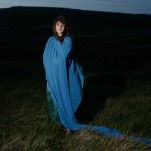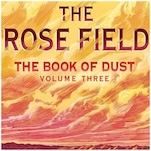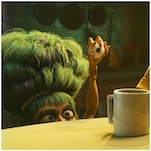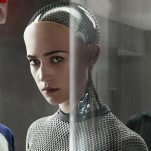Hagazussa: A Heathen’s Curse
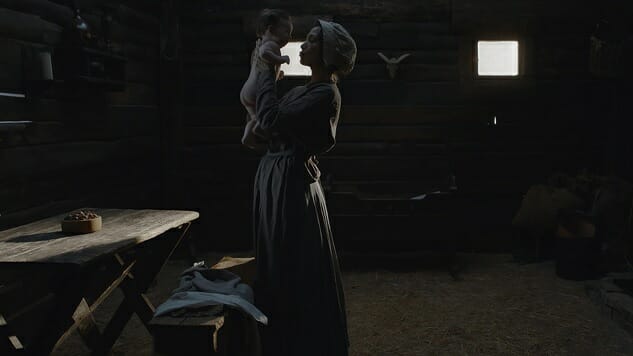
According to Hagazussa: A Heathen’s Curse, the first feature-length film from director Lukas Feigelfeld, Austria’s hinterlands are streaked with clouds like too much milk poured into coffee, carpeted by an emerald canvas of grass and moss. If horror movies weren’t their business, then Feigelfeld and cinematographer Mariel Baqueiro could make a decent living shooting video diaries supporting Austria’s outdoor tourism industry. But horror is very much their gig, so the country’s natural beauty becomes a framework supporting a tale twice as disgusting.
Content warning for people with misgivings about cannibalism, vomit, organ splatter, maggoty mushrooms, sexual assault and infinitely worse: Hagazussa provides a minefield of triggers. It’s gross. It’s also stunning, a hypnotic recreation of its time and its place: 15th century Europe, a land cast into the dark ages long before the advent of the age of reason. In between unsettling and barefaced displays of noxious human ills and pseudo hallucinatory insanity, rests still frames so gorgeous they belong in their own art gallery tableau. Snapshots of Austria’s countryside megacosm center on Albrun (Alexsandra Cwen), a woman orphaned as a girl and still alone as an adult, who spends a majority of her time trudging through and taking respite in the forests of her homeland.
But Hagazussa’s idyllic appeal belies evil lurking in its frames, stalking Albrun like a basilisk, turning the woods she inhabits to stone. Albrun is marked from birth, doomed to alienation from and othering by her fellow man: As a child, depicted in the film’s opening chapter by Celina Peter, she and her mother, Martha (Claudia Martini), are harassed in dead of night by men disguised in fearsome horn-headed costumes, as concealing as they are intimidating. They’re infernally convinced Martha’s a witch. An hour and change later, the audience is given reason to wonder if they were right. To young Albrun, their incursions qualify as nightmares worse than those chronicled in fables.
In the present day narrative, the prejudice of her youth follows her. She’s harassed by snotty village boys, then spared their taunts by a seemingly benevolent woman, Swinda (Tanja Petrovsky), then manipulated into serving Swinda’s own perverse ends. If Albrun isn’t a witch, society does a bang-up job giving her incentive to reconsider the calling. Society, after all, has a gift for birthing its own worst enemies; it’d be impressive if it wasn’t so exasperating.
-

-

-

-

-

-

-

-

-

-

-

-

-

-

-

-

-

-

-

-

-

-

-

-

-

-

-

-

-

-

-

-

-

-

-

-

-

-

-

-







